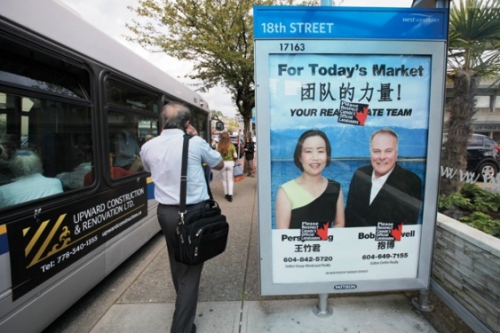Mark Zuckerberg Delights Tsinghua Audience by Speaking Exclusively in Putonghua
Posted: 10/23/2014 2:31 pm Mark Zuckerberg’s visit to Tsinghua University yesterday revealed some important announcements, but it wasn’t what he said so much as the way he said it that has delighted Chinese audiences.
Mark Zuckerberg’s visit to Tsinghua University yesterday revealed some important announcements, but it wasn’t what he said so much as the way he said it that has delighted Chinese audiences.
The founder and CEO of Facebook spoke exclusively in Putonghua at a sit-down interview in front of Tsinghua students. For 29 minutes, Zuckerberg spoke fluent Chinese and smoothly answered questions despite having a hard English accent and with difficultly getting his tones correct.
Zuckerberg received a round of applause by beginning the talk with “大家好” (hello, everybody), and continued to astound the awestruck crowd by continuing in Chinese. The only English spoken during the talk was by the host when he introduced Zuckerberg.
 Zuckerberg announced some of his plans, such as the hiring of about 20 Chinese nationals to work abroad, something that has happened annually for awhile. But Zuckerberg usually fielded much simpler questions, all pertaining to China.
Zuckerberg announced some of his plans, such as the hiring of about 20 Chinese nationals to work abroad, something that has happened annually for awhile. But Zuckerberg usually fielded much simpler questions, all pertaining to China.
When answering “Why did you learn Chinese?”, Zuckerberg said that his wife Priscilla Chan is Chinese, a statement that drew a large round of applause from the audience. He explained that her grandmother only speaks Chinese, and he wanted a way to converse with her.
Besides saying he wanted to learn more about Chinese culture, Zuckerberg said that Chinese is a difficult language to learn, and that he wanted a challenge. To this, the host said, ”Today, let’s all challenge Mark.”
 Zuckerberg had earlier met Chen Jining, the principal of Tsinghua, had and held talks about cultivating talent and opportunities to work together. Zuckerberg has agreed to serve as an advisor at Tsinghua.
Zuckerberg had earlier met Chen Jining, the principal of Tsinghua, had and held talks about cultivating talent and opportunities to work together. Zuckerberg has agreed to serve as an advisor at Tsinghua.
Zuckerberg has been learning Putonghua since at least 2010.
Here is video so you can hear Zuckerberg’s Putonghua for yourself:
Photos: screencaps from QQ














